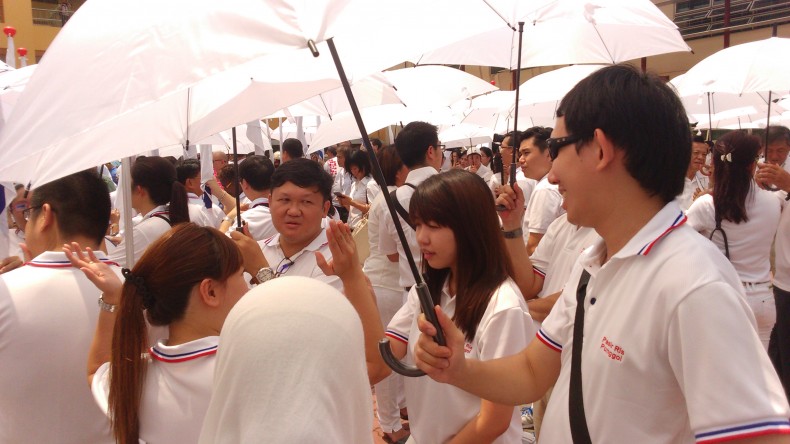
In Singapore elections — as elsewhere — people form political opinions including views about parties and whom to vote for based on what they read in the media, what they hear at rallies and what they discuss with others. The emergence of new media such as the Internet and mobile phones has led to more channels where people can talk about politics, for example, via Facebook or WhatsApp.
Political talk is a form of active citizenry and a way to make sense of political information particularly in societies such as Singapore that are often described as not fully democratic. When mass media is not completely free, political discussion becomes a crucial channel for alternative viewpoints.
As GE2015 nears, it will be interesting to find out:
- How much do people talk about politics during election time?
- Who do people talk to about politics?
- How much do people disagree with each other when talking about politics?
- How do people perceive the importance and trustworthiness of political talk?
Associate Professor Zhang Weiyu carried out a study that explored the above questions during GE2011. Here is an excerpt from her chapter in a recently published IPS book:
During the 2011 General Elections, Singaporeans, on average, did not talk much about the elections. If we only consider talking with family and friends, Singaporeans, on average, sometimes talked about the elections. The lowest frequency was found in talking with people met online. In addition, Singaporeans who talked about the elections found that they disagreed with their fellow discussants only rarely or sometimes. Despite this lack of political talk and disagreement, political talk was perceived to be the second most important information source as well as the third most influential source on voting decisions. However, the trustworthiness of talking was lower than not only mass media but also party sources and alternative websites. Political talk is often linked to demographic factors. People who are 30 years old or younger were more engaged in political talk (including frequency, importance, trustworthiness, and influence) than those who are older than 30.It is consistently shown that engagement in political talk was higher among people who have higher education and income. Almost half (49.6%) of the respondents refused to reveal their voting decisions but those who were willing to say they voted for the opposition were more engaged in political talk than the others. When people who said they voted for PAP talked about the elections, they encountered more disagreement than the others.
These findings also point to certain practical implications.
First, despite the significant influence of traditional mass media during election time, talking with others is still important, although not frequent. The power of “word of mouth” should not be underestimated, especially in the new media era. Research has shown that generally direct interpersonal communication between politicians and citizens and among citizens themselves helps to increase political knowledge, and in some cases, political participation. If political participation is preferred over political apathy, then building an environment where political discussions are encouraged and political differences that stem from such discussions are managed appropriately would be a conducive approach.
Given the proliferation of new media in Singapore, the future promises more, rather than less, political talk.
[Note: Respondents were asked to indicate on a 5-point scale (1 never, 2 rarely, 3 sometimes, 4 often, 5 very often) how often they discussed the elections with these groups: (1) family members;(2) friends;(3) colleagues at work;and (4) people they meet online]
For more, please refer to the chapter “The Silence of the Majority: Political Talk during Election Time” by Associate Professor Zhang, who is from the Communications and New Media Department, NUS. This chapter can be found a book by IPS on the 2011 General Elections. Entitled “Battle for Hearts and Minds: New Media and Elections in Singapore,” it is available in bookshops and for order online here.
This is the fourth article in the series. Please click here for more New Media Insights.
Photo via Mothership.sg

